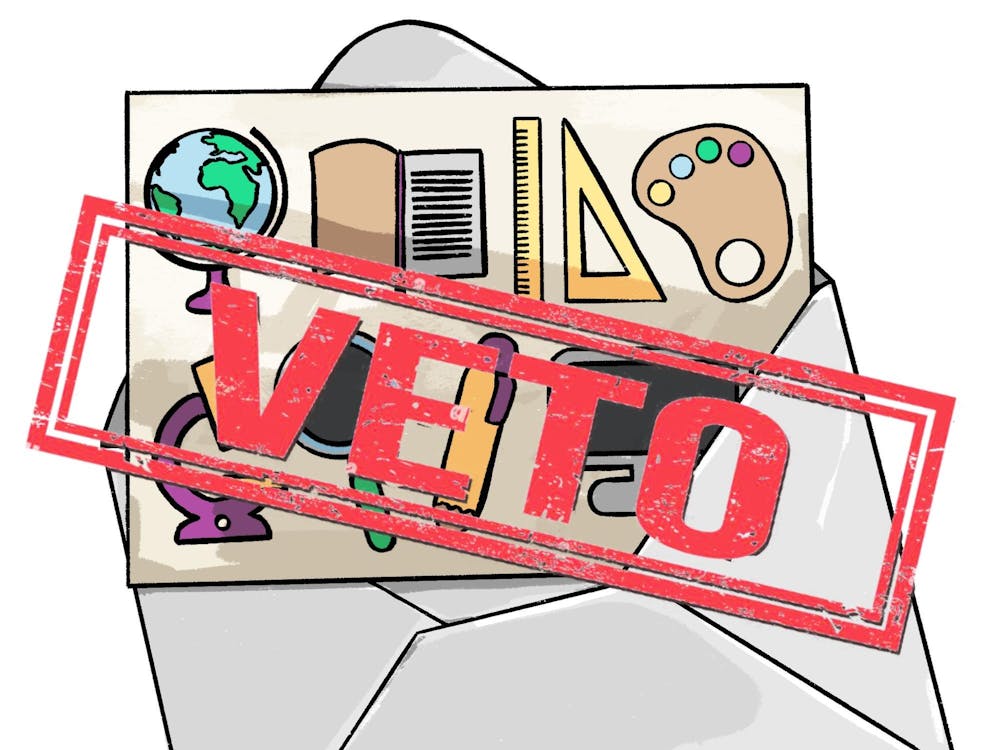One of my earliest memories of artificial intelligence (AI) is from sixth grade. My classmates and I were assigned individual projects, and we were expected to present the information we gathered without reading directly off the whiteboard.
Presentations were running smoothly until my teacher came across a link pasted on the title box of one of my classmate’s slides. The link redirected the classroom to an AI that would complete your projects for you at the small price of $1.99. My face flushed with second-hand embarrassment.
But that’s all in the past now. Today, you no longer need to pay a friend or AI to do an assessment or test for you. AI has become so accessible and advanced that ChatGPT 4.5 can now pass the Turing test, which gauges the capacity of a machine to exhibit intelligent behavior equivalent to that of a human.
These days, it’s not too uncommon to come across a ginormous AI text box disguised as a peer’s project. We see it all the time – or rather, evidence of it.
Recently, I witnessed a student presenting to the class, empty eyes at the front of their face, and that distinct ChatGPT grey highlight glaring around the words on the board behind them. To make matters worse, the student struggled to pronounce all the long words, and they did so in such a way that when class ended, I left feeling deeply concerned. Concerned for the future of education in this country. Concerned for our future professionals and parents. Concerned for our political future.
Evidently, such an issue is rooted in the same classroom culture it disrupts.
At this moment in history, education is in peril. Coupling political challenges with the rapid involvement of AI (particularly ChatGPT) in our learning environments, the threat becomes magnified.
We must confront this very real problem. Children are not learning. We are not learning.
I want to preface this by saying that AI tools aren’t entirely awful, but there is an undeniable codependency that has emerged since the launch of popular software, such as ChatGPT, and a new learning deficit has arisen.
While it has always been easy to blame the students and young people for this brewing education crisis, I never hear any criticism for the professors that burden their students with such equally excessive and time-consuming homework and material, which causes a desire to cheat in the first place.
In fact, a direct result of this concerted effort of free-time theft is that if you open any social media app and scroll far enough, you will discover the humanization of ChatGPT (aka “Chat”) among users. Countless memes depict Chat as a divine force or a figure. In the past week, I’ve probably seen more images of ChatGPT embodying a handsome brunette than I have blades of grass.
Yet, there wouldn’t be a market for this behavior and technology without a driving force. People see AI as a savior, more meaningful than a Google search, which doesn’t have a suave name.
Enjoy what you're reading?
Signup for our newsletter
Nobody wants to spend their days working on the same tedious assignment questions or meaningless busy-work. Time reclamation is the purpose.
I’m quite sure I will be met with plenty of dissent when I say this; however, academia’s prevailing obsession with over-educating everyone and over-complicating everything has brought us to a dangerous crossroads. We now live in a world where people spill their deepest secrets, question their worth and every decision they make, develop social anxiety and forfeit curiosity for the sake of a good enough grade, more daylight or praise.
These users aren’t stupid, only lambs running away from the slaughter.
Interestingly enough, amongst most of the student population, there is a remarkable lack of shame in using AI, which exemplifies just how assured they are in their reliance. By and large, students understand something many professors haven’t yet grasped: most people don’t want to spend their current life studying for the next exam or pursuing a more “prestigious” degree immediately after graduating.
We must cut back on ChatGPT; nonetheless, we should recognize that our stubborn educators must be the ones to change first. Professors don’t have the cards to make the demands they have because they can’t regulate Chat. Sorry, but that’s the inconvenient truth.
If professors assign less – but more relevant – work, there’s a greater chance that students will make honest attempts rather than highlight the text and send it off to Sam Altman’s favorite tab.
When you overwhelm students, you overwhelm data centers.
Gabriel Slark is a first year double majoring in public administration and strategic communication from Westerville, Ohio. He is a research assistant for Professor Katherine Kuvalanka and a writer for the opinion section of The Miami Student.




